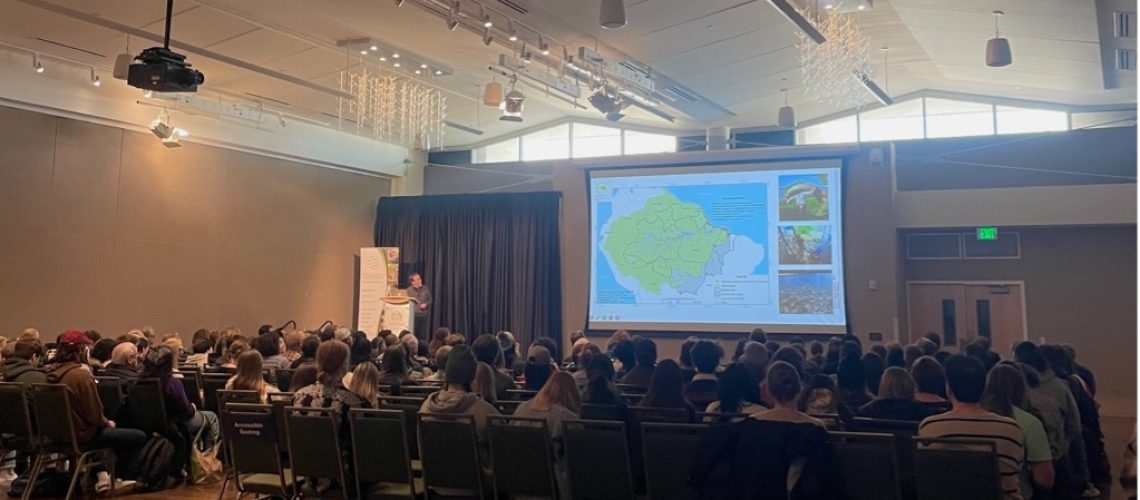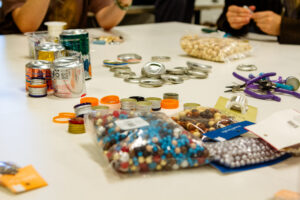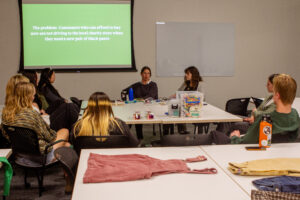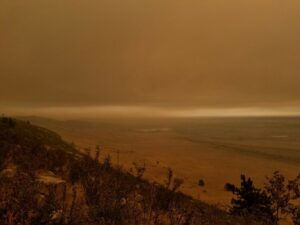Written by Bella Conrad
The School of Environmental Sustainability at Colorado State University invited Eduardo Brondízio, an anthropologist, to speak at the Lory Student Center on February 27 about place-based actions for sustainability in the Amazon rainforest. A place-based action is typically a project where a team works in the field and involves more connection with the community.
“The Amazon is an entry point for conversation,” Brondízio said “I think it extends more broadly to global environmental change.”
Brondízio spent time in the Amazon trying to implement place-based actions to help local communities adapt to global climate change.
Brondízio explained his experience with place-based actions in the Amazonia as “looking to global change and understanding global change from the perspective of where you can ground yourself in the region.”
Brondízio spoke on his collaborative projects in the different regions of the Amazon to solve problems specific to that area. These projects included different micro-industries throughout the region, and he addressed them as his Acai and Arapaima stories.
“The Acai story is a story of sustainability,” Brondízio said. “[It is] a story of local knowledge, a story of food production in forests.”
The Acai story is about the local production of the well-known fruit acai in the Amazonia. It is influential because acai is a valuable resource to the Amazon’s economy. Brondízio and his team worked with the local community to learn about their food production system and consumption in the region.
“Acai is shaping the Amazon landscape broadly,” Brondízio said. “But the value is aggregated farther and farther away from the region, so it benefits the region a lot. It’s very limited in translating that benefit to actual economic development that benefits the municipality.”
Brondízio and his team are working on a process called verticalizing, a process where the economic earnings from local businesses are further reflected in the expansion of their companies to increase economic growth in the Amazon.
“All the production is translating into better values, more jobs, and taxes for municipalities,” Brondízio said.
Brondízio then spoke about the Arapaima story, which is about the fisheries in the Amazon. These fisheries were impacted by fishers who came to the lakes to fish with more advanced technology than the community. Then, they would leave behind an empty lake, increasing the number of endangered fish.
“In the 70s and 80s, we had social movements granting communities the right of exclusion of the fishing vessels from their lakes,” Brondízio said. “It was some sort of agreement in which they could manage it or protect that lake that led to the concept of community-based management.”
A researcher working with the community developed a technique for counting a species and compiling the data to determine population numbers. This allowed quotas to be granted to local communities based on the frequency of a species. These quotas were legal to sell, and they helped protect the lakes and floodplains.
“This was highly successful,” Brondízio said. “In a few years you will have the restoration of the populations of many areas and progressively, the expansion of this Amazon estate.”
Brondízio connected these stories to global issues and global change. He noted that the most important global development in sustainability is the decline in food production jobs. He believes that these stories in the Amazon can help revert the mindset that people do not want to work in the agriculture and food industry.
“This is not only about Amazonia,” Brondízio said. “This is about global change.”
Discover more upcoming events with CSU’s School of Global Environmental Sustainability here: https://sustainability.colostate.edu/engagement/.
To reach The Green Bulletin, contact the SSC Content Officer at samanthanordstrom1@gmail.com






